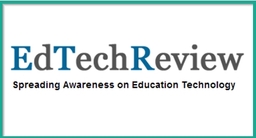
 Today we start with the Ed Tech Review and an all-encompassing post on "How Has the Internet Impacted Education." The main focus of the article is higher ed, but most of the info holds true for K-12 as well. The post centers around an infographic from SEO.com which gives us some interesting statistics like the fact that a whopping 90% of teachers use some form of Social Media to connect with their students.
0 Comments
 Over the past 5 years the importance of social media in education, and society in general, has grown exponentially. But, those educators who are not familiar with the basics of social media may find the task of implementing its use in the classroom a near impossibility. With that in mind, we start today's Round Up at Edudemic with a post on "5 Free Online Courses for Social Media Beginners." If you have no idea what this whole "Facebook" thing is, this is the site for you! Edudemic also has a guide on "8 Steps to Great Digital Storytelling." With digital storytelling, students can easily become the creators of their own content. They can embed and mix videos, images, text, and their voice together to create a story or lesson that is uniquely their own. And with today's tech resources, creating a digital story can be accomplished relatively easily and at any grade level. So, check out Edudemic's guide for all the steps and resources! 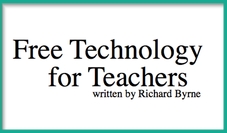 Welcome back! We've got a pretty short Round Up for today and we'll start at Free Tech for Teachers with a review of "Scrible - Bookmark, Annotate, and Create Bibliographies." Scrible is a free browser-based app that helps students with highlighting, annotating, citing, and creating bibliographies. I'd also recommend checking out Diigo, if you're looking for another app that helps students organize information and create annotations.  Welcome back! I'd like to begin our Memorial Day post by sharing my gratefulness for all the courageous men and women who have given their lives in service; and to all those who have served in the armed forces and/or continue to do so, you have my gratitude. And for those teachers who would like some great resources on teaching about Memorial Day in the classroom, here is a good place to start. 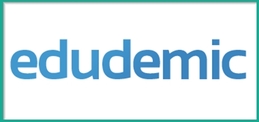 Our Weekend edition begins at Edudemic with an enjoyable and inspiring post entitled, "Why Right Now is Just the Beginning for Education Technology." In the post, Dr. Jeff Borden argues that educational technology is only in its infancy and that we have a long way to go - but that's the exciting part! I agree wholeheartedly with the post and it's worth reading! Next, Edudemic discusses an interesting infographic on "Why and How Teachers are (and aren't) Using Technology." The infographic focuses on early childhood education and the prevalence of technology in the classroom. The most optimistic statistic I found in the infographic was that over half of classrooms have students working on technology every single day, and only 8% have children using technology less than once a week (500 teachers and administrators were surveyed). Finally, Edudemic closes with a post on "4 Tools to Help Avoid Summer Learning Loss." They cover:
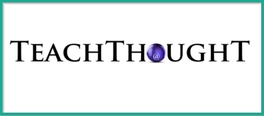 Next up, TeachThought has a post covering "The Simple Things I Do to Promote Brain-Based Learning in my Classroom." In the article, Dr. Judy Willis describes how she strives to not only teach students content, but to help them understand how their brains work and how learning occurs. It's an excellent and thought-provoking post with ideas that are useful in all grades and subject areas.  Educational Technology opens the weekend with a post reviewing "5 Web Tools to Create Awesome Digital Newspapers for your Class." The post covers Issuu, Scribd, Zinepal, Fodey, and Paper.li. Personally, I'm a big fan of Issuu and if you look under our lesson plans page, you'll see a student guide for uploading content to Issuu. Educational Tech also has a new guide covering "Everything Teachers Need to Know About Google Spreadsheets." If you're not familiar, Google Spreadsheets is a component of Google Docs/Drive and can be an excellent (and free) alternative to Excel. If you've never used the app before, this guide offers lessons on all the basics and is a great place to get started. 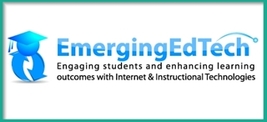 Emerging Ed Tech has an awesome write up on "Exciting Developments in Uses of 3D Printing in Education." We have only just begin to explore the benefits 3D printing can have in education and this article does an excellent job of putting together examples from schools across the country. The Lightning Round...
And there's the weekend for you! We'll end today's round up with an interesting infographic that discusses current trends in Gamification... See you tomorrow!  Created by Knewton and Column Five Media 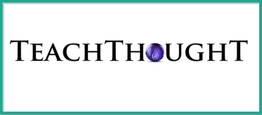 Happy Friday! Today's Round Up starts at Teach Thought with a helpful post covering "4 Sources of Low Cost Textbook and Educational Resources." With ever-tightening education budgets, this post suggests checking out resources like Bookboon, Flat World Knowledge, OpenStax College, and Boundless. While the primary focus of these sites if for university students, high school classes could also benefit. 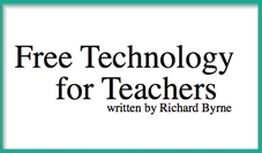 Free Technology for Teachers starts off with "Every Stock Photo - A Search Engine for Free Images." Every Stock Photo is an excellent site for students to find public domain and creative commons licensed pictures. Setting the advanced Google search settings to find public domain photos can sometimes be tricky for students just learning the web, and this site is a great alternative for finding properly licensed photos. Free Tech also introduces us to "FatURL - Share Bundles of Links" Need to share a big group of links for a webquest, project, or class activity? FatURL is the perfect tool to package your links and send them all together in one easy bundle.  Getting Smart opens with a post entitled, "Next Gen Science Standards 101." This post offers the perfect introduction to the NGSS, a set of standards that today's science educators should consider. The post outlines the basics of the NGSS and provides 5 resources for teachers to check out. And Getting Smart also covers "DragonBox: This is How You Gamify" DragonBox is an "educational game that secretly teaches kids algebra." The program runs on mobiles, tablets, and desktops and works to help students discover the rules and principles of algebra while they play. This is an excellent app and worth checking out for math learning. (along with MangaHigh from yesterday's Round Up.) The Lightning Round...
And there you have it, short and sweet! The Round Up will be back on Sunday with the weekend edition and until then, have an excellent weekend! 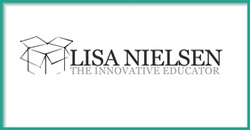 It's almost Friday! And today's Round Up begins with a new post from Lisa Nielsen on "4 Ways to Provoke Change in Our Education System." The article discusses the best ways to help inspire diversity, curiosity and creativity within the classroom and she gives great examples, ideas, and resources that teachers can get started with immediately. 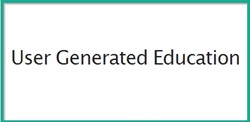 Over at User Generated Education, Dr. Jackie Gleason has an excellent new post on "The Other 21st Century Skills." She opens with a quick overview of what some may call "traditional 21st century skills" and then outlines the other attributes that she believes would "best serve learners in this era." It's a great read! 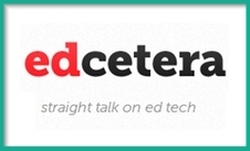 EdCetera has a new post describing "How Hardware is Hurting the E-Textbook Industry." Their main argument is that the cost of the hardware required to use e-books, and the readability of the digital content are the two major factors hurting the E-Textbook industry. However, they end the article by discussing how schools are creatively working to deal with the issue of cost. 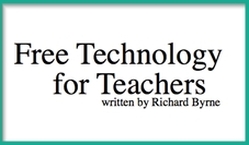 Free Technology for Teachers starts off with "5 Good Resources for Teaching & Learning About Shakespeare." The post discusses some excellent Shakespeare tech resources like Shakespeare Animated, Crash Course videos on English Lit, Insults by Shakespeare, LiveBinders Resources, and Shakespeare's original pronunciation guides. Next, Free Tech covers "5 Great Activities from Read Write Think." If you're not familiar with Read Write Think, they offer some of the best free elementary language arts lessons around. This post covers a few of their tools, and if you teach elementary LA, it's definitely worth the read. And Free Tech closes with a post reviewing "Harvest of History: Helping Students Understand Farms." The program is designed to teach elementary students about farms and help show them where their food comes from.  Edudemic begins with a post covering "How To Properly Integrate Education Technology." I think we've all seen examples of schools buying new technology, giving it out to teachers and students, and then expecting miraculous results. However successful tech integration requires much more work, and this article describes the steps to make it happen. Edudemic also has a nice post on how to "Integrate iPads Into Blooms' Digital Taxonomy With This 'Pedagogy Wheel'" The Pedagogy Wheel was created by Allan Carrington and shows you the best apps for each level of Blooms' Taxonomy. I've embedded it here for your viewing pleasure (click for full size) 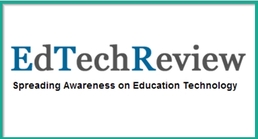 We've been talking a lot lately about game-based learning and to follow up on that, the Ed Tech Review has a new post entitled, "Reasons for Slow Adoption of Gamification in Education." The article outlines what they believe to be the main reason that game-based learning is taking its sweet time making inroads into the classroom.  And on a related note, Getting Smart has a new post about an "Australian Study Points to Benefits of Games-Based Math." the article reviews the implementation of games fromMangaHigh within middle school classrooms in Australia. The findings from the study are pretty impressive, specifically that 100% of the teachers involved reported that the using the games improved student learning outcomes. Getting Smart closes with a post on "Buidling STEM Skills by Learning Game Design." The article talks about using Game Design Tool Kit to teach students the basics of programming and design while they create games. I'd also recommend checking out GameSalad, it's similar to scratch but more geared towards game/app design and it's also a great free resource to teach students programming. The Lightning Round...
And we'll end today's Round Up with an excellent new infographic on the STEM Skills Gap. Courtesy of: Edudemic 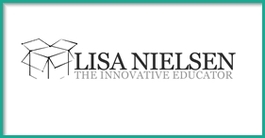 Today we start the round up with Lisa Nielsen and her post, "5 Ways to Increase Chances of a Successful 1:1 Implementation." There has been a huge 1:1 push in recent years (be it with laptops, ipads, or smartphones) and schools have met with mixed success. There is an enormous amount of work that goes into the launching a 1:1 program and Ms. Nielsen's post is a great place to start. 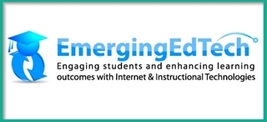 Much like 1:1 initiatives, creating a "flipped classroom" can also be met with mixed results. Emerging Ed Tech has a new post which chronicles the failures of an IB Chem Teacher as he struggles to design a flipped classroom. Fortunately, he gives us a chance to learn from his mistakes and offers some great advice on launching your own flipped classroom.  Over at Educational Technology there is a new summary providing "20 Tips to Protect Your Online Identity." This is an excellent list for elementary and junior high students (hopefully high school students are familiar with them!) to help them begin thinking about online safety. The original article from the UK Guardian can be found here (Ed Tech provides a good summary though).  Moving at the Speed of Creativity has a great post entitled, "Why Your School Needs a Scratch Club." If you're not familiar with Scratch, it's a program from MIT that teaches the basics of computer programming in a fun and easy to understand interface. Offering clubs, like the kind described in the post, is a great alternative if your school doesn't offer a computer science course.  Hybrid Pedagogy has a post from last month (that today's The Wheel directed me to) on "Why Online Programs Fails, and 5 Things We Can Do About It." Online educator or not, this post is incredibly thought-provoking and worth your time. I'll just stop there and let you go check it out... 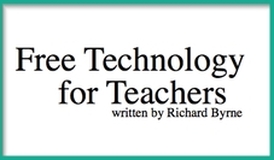 And, we're back! Free Technology for Teachers starts off covering "Five Ways to Digitally Celebrate Your Students' Year." It's an excellent end of the year post and covers a variety of tools for making class videos, creating collages, designing a collaborate slideshow, creating a classroom portfolio, and bringing in relatives to enjoy the celebration too! Free Tech also offers a way to "Get Creative Commons Savvy With These Activities." The post talks about using yesterday's EFF plans in conjuction with P2PU's new four module unit on Getting CC Savvy. These two activities together are in excellent way to help inform students about the rules and regulations of copyright law. And Free Tech ends the day with an introduction to "The Dictionary of Numbers - Putting Numbers in Human Terms." The Dictionary of Numbers is a Chrome extension that "translates large numbers into terms that are easy to visualize." With the extension running, you can highlight any number you find on the web and choose to launch the app.  Getting Smart starts off with an article on "Building a Digital Depository." The main idea at the core of the post is the suggestion that the "federal government must re-imagine its role in education" and become more active in helping school districts identify and supply network needs. They offer some valid and interesting points that are worth considering. Getting Smart also has two new posts about the Common Core Standards, "In Support of the Common Core," and "Common Core: A Platform for Equity and Innovation." Both posts discuss the benefits and potential of the new Common Core Standards (which 45 states have officially adopted). The first post centers around today's letter from 11 state officials on the need to fully support the CCS, and the second post focuses on the power of the CCS to allow for innovation and exploration in education. The Lightning Round...
And we'll end today's Round Up with an infographic on "Learning on the Go" from T.I.E. Until tomorrow!
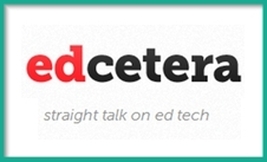 Today's Round Up begins over at EdCetera. The summer is almost upon us (woo!) and EdCetera has "A Roadmap to Becoming More Edtech Savvy This Summer." The post discusses using social media to create a personal learning network, narrowing your focus to specific technology tools, and attending online webinars and workshops. Plus, you can keep tuning in to the Round Up, we'll be here all summer long! 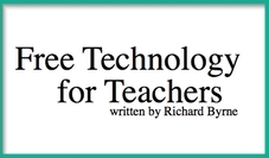 Free Technology for Teachers has a review of "5 Good Lesson Plans for Teaching Copyright." The post takes a look at the Electronic Frontier Foundation's new lesson plans that outline copyright laws for students. Each lesson is 60 minutes long and includes assessment and support documents. Standard alignment is also addressed (for the California standards and for ISTE NETS).  Next up, Moving at the Speed of Creativity has a great post on "Using Student Videos on YouTube to Demonstrate Proper School Procedures." The article talks about Jennie Wilmes, a K-3 librarian in Oklahoma who has students make YouTube videos outlining school procedures. It's an excellent idea and one that could easily be used in any school.  Tech & Learning has a article describing how "Gym Class Can Go High-Tech, Too." Many times, physical education is over-looked when it comes to tech integration and this post does an awesome job describing how P.E. teachers can flip their classroom and use technology to extend learning and activity beyond the classroom. 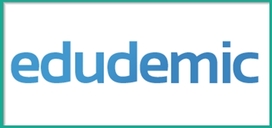 Edudemic starts the day off with a guide on "25 Things Teachers Should Know About Gamification." The use of games in education has drastically increased in popularity over the past decade and it's an important strategy teachers should look into. Games can increase engagement and motivation and be used outside of the classroom as well. Edudemic also has a post about "10 Creative Ways to Use Google Tools to Maximize Learning." The article covers some best-practice methods for using Google Docs, Forms, Voice Comments, Research Tools, etc. within the classroom. If you're not familiar with Google's collection of tools, they can be a huge benefit in the classroom. Finally, Edudemic closes with a guide on "How to Cite Social Media Using MLA and APA," which is mainly just this picture from TeachBytes:  Next up, Educational Technology has a "Teacher's Guide to Creating Facebook Groups for Students." If you've never considered creating a Facebook group for you class, they can be enormously beneficial. You can use them to connect to students outside of class, send assignments and messages, and engage in discussions. Ed Tech also has a post on "5 Steps to Create Stunning Slideshows with Audio Using Youtube." Most people don't know that YouTube has a new set of features which allows for webcam capturing, video editing, and creating photo slideshows. Using YouTube can be an easy (and free) alternative to creating a presentation through PowerPoint or Prezi. You can even add effects and transitions! 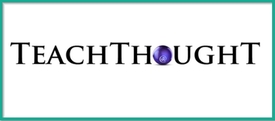 Finally, we'll end the day at Teach Thought with "4 Keys to Designing a Project-Based Learning Classroom" and "11 Steps of Effective Project-Based Learning in a Blended Classroom." Together, these articles offer some great advice on successfully implementing PBL within the classroom.  Thanks for tuning in today and good luck with the closing weeks of school! Unless you're out already, in which case I'm more than a little jealous. I usually end with a new infographic from the day, but instead I found a great Pinterest page full of dozens of Ed Tech infographics! Enjoy and see you tomorrow! 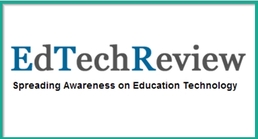 We made it through Monday! And the Round Up begins over at the Ed Tech Review with a post on the "Impact of Game Based Learning on Education." The article discusses the benefits of including some form of game-based learning within the classroom: students can learn faster; a variety of learning styles are addressed; data can be captured and analyzed at an incredibly fast rate; and so on. Definitely an interesting read. 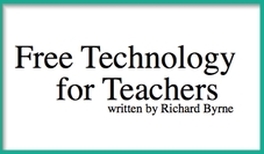 Next, Free Technology for Teachers has a great article on "The Top 10+ Sites for a Successful 1:1 Laptop Program: Experiences from the Trenches." The article reviews 14 different software options that have been found useful for teachers and administrators within 1:1 laptop schools. All different grade levels and subjects are covered and there are some wonderful resources for any district heading this direction. Free Tech for Teachers also has a two-part series up on "Tips for Leading Google Apps Training" This article is mainly for technology integration specialists who will be giving PD sessions over Google Apps, so if that's you - check it out! (Here is the link to Part 2)  Tech & Learning has a write-up on "How to Create a Shared iPad Cart model." The post discusses how my alma mater, Blue Valley High School, successfully implemented a shared iPad cart model. This is a great alternative to consider if your district size or budget prohibits a 1:1 distribution of iPads. Or, this shared cart model can function as a stepping stone on the road to complete 1:1 integration.  Over at Getting Smart we start with a post entitled, "Mythbusting: Q&A with K12 Leadership." The GS team sat down the exectives from K-12 online learning and discussed everything from the importance of online learning to the evolving role of the teacher in a digital setting. It's a good read, especially if your school is considering including online course options. Getting Smart also has a new article and infographic about "Growing Up Google." The post examines the growing role Google and Google Apps are having on education. Interesting information to consider especially given Google's latest news about their Google Play for Education app store. Finally, Getting Smart has a post on "Jen Robert's Classroom in the Cloud." Ms. Robert is a high school English teacher who has done an impressive job incorporating digital learning into her curriculum. The post also has a short two-minute video explaining her classroom set up. You can also check out her blog.  Finally, Education Week has a article about how "Digital Trends Shifting the Role of Teachers." The post talks about the kind of changes technology is causing within the classroom and how teachers are dealing with these changes. The article also discusses BYOD policies, using social networks, and the problems that can arise during technology integration. The Lightning Round...
 And that's it for the Round Up today! I'll leave you with the exciting news that you can now subscribe to receive the Daily Round Up through email! I'm still working out the kinks, but if you want to subscribe... Click Here to Subscribe! And just tell me you want in! In closing, here's a new infographic that compares digital footprints across generations... Courtesy of: Educational Technology |
Round it up!The Ed Tech Roundup is your source for regular updates on the latest educational technology news & reviews. FeaturedCheck out our featured review | ClassroomAPP: A Complete, K-12 Digital Platform for Online and In-Person Classrooms
SubscribeWant to receive email copies of our featured reviews? Sign up below
ConnectAwardsArchives
September 2020
|

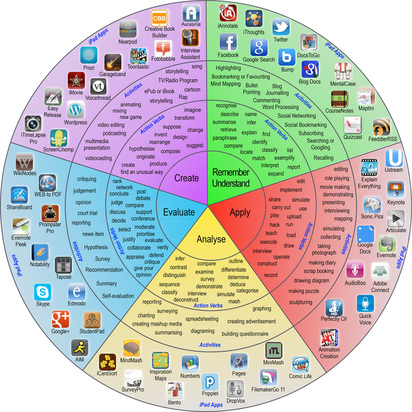

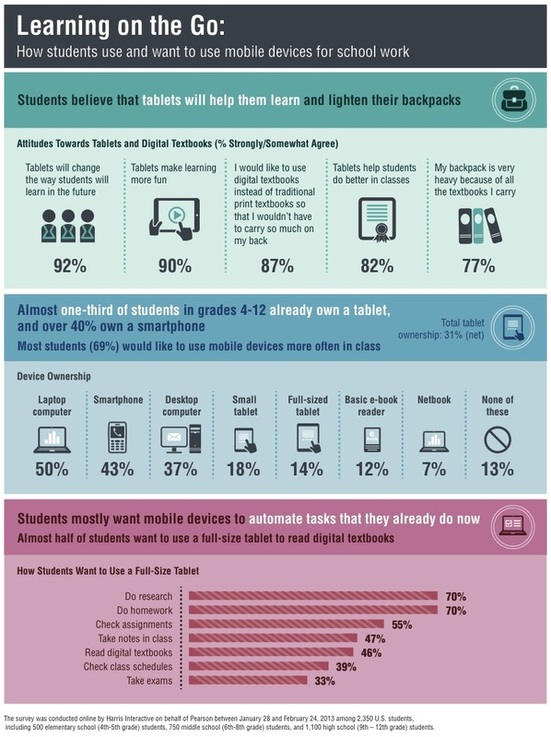
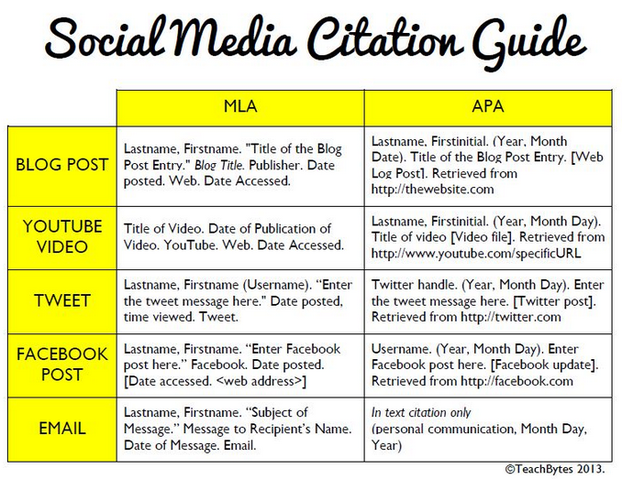









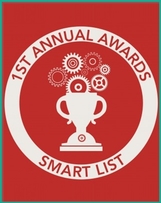
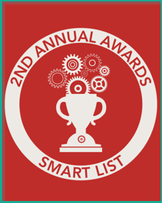

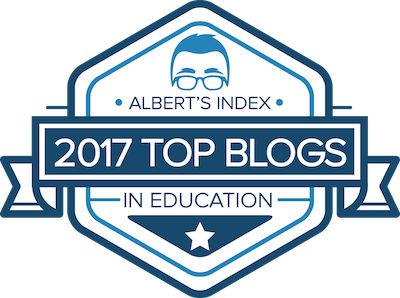
 RSS Feed
RSS Feed
